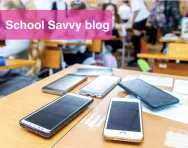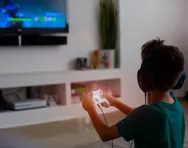Important update from TheSchoolRun
For the past 13 years, TheSchoolRun has been run by a small team of mums working from home, dedicated to providing quality educational resources to primary school parents. Unfortunately, rising supplier costs and falling revenue have made it impossible for us to continue operating, and we’ve had to make the difficult decision to close. The good news: We’ve arranged for another educational provider to take over many of our resources. These will be hosted on a new portal, where the content will be updated and expanded to support your child’s learning.
What this means for subscribers:
- Your subscription is still active, and for now, you can keep using the website as normal — just log in with your usual details to access all our articles and resources*.
- In a few months, all resources will move to the new portal. You’ll continue to have access there until your subscription ends. We’ll send you full details nearer the time.
- As a thank you for your support, we’ll also be sending you 16 primary school eBooks (worth £108.84) to download and keep.
A few changes to be aware of:
- The Learning Journey weekly email has ended, but your child’s plan will still be updated on your dashboard each Monday. Just log in to see the recommended worksheets.
- The 11+ weekly emails have now ended. We sent you all the remaining emails in the series at the end of March — please check your inbox (and spam folder) if you haven’t seen them. You can also follow the full programme here: 11+ Learning Journey.
If you have any questions, please contact us at [email protected]. Thank you for being part of our journey it’s been a privilege to support your family’s learning.
*If you need to reset your password, it will still work as usual. Please check your spam folder if the reset email doesn’t appear in your inbox.
Should schools ban mobile phones?

Ah, the digital age – where even our youngest children are as tech-savvy as they come, navigating touch screens before they can tie their shoelaces.
I'm sure you will have seen the news headlines that are circling at the minute following Education Secretary Gillian Keegan releasing new guidance that she believes will provide "consistency to reset the social norm that there is no place for mobile phones in our schools all the way through the school day".
She said there was currently a mixed picture on policy, with some schools allowing use of mobiles during break times and others having an outright ban.
The goal seems admirable - minimising disruption and ensuring that the focus stays on learning (not the latest TikTok dance challenge). It's about crafting a classroom environment where the only buzz comes from excited chatter, not vibrating phones.
However, for many schools, especially at primary level, this has not been an issue and they have already found effective ways of working to manage this.
Are mobile phones useful for primary school children?
Let's face it, for primary schoolers, the need for a phone during the school day is as rare as a quiet lunchroom. Would it really be needed to have a blanket ban for all schools? The voice of reason (and experience) tells us that blanket bans or rigid rules often miss the mark. It's about understanding, not ultimatums.
As children become more independent during their later primary years, they are often given permission to walk home alone. Something that can be quite daunting at first for them and for parents. A mobile phone can provide a vital link between the child and home – a safety net if you like. Taking this away from children could actually make them feel less safe. A ban could potentially cause more problems than solve.
What about phone bans in secondary school?
Here's where things get tricky: secondary school. Less supervision, more temptation. Some surveys show phones cause a lot of disruptions in secondary classrooms, not to mention the risks with online safety and cyberbullying.
Yet, it's not all doom and gloom. Some schools have found ways to turn mobile phones into a learning tool. After all, how often do we adults reach for our phones to Google something?
What do educators think about the idea of mobile phone bans?
New guidelines or not, most schools already have rules in place about phones. Geoff Barton from The Association of School and College Leaders isn't holding his breath for big changes. He's quoted by the BBC saying: "We have lost count of the number of times that ministers have now announced a crackdown on mobile phones in schools. It is a non-policy for a non-problem. The government would be far better off putting its energies into bringing to heel the online platforms via which children are able to access disturbing and extreme content."
This is a sentiment that many head teachers would agree with at both primary and secondary level – we cannot simply ban mobile phones to make things better online for our children.
In this digital age, perhaps the most valuable lesson is learning when to tune in and when to tune out. This needs to start as our children navigate through primary school and ensure that as they grow, they're equipped not just with smartphones, but with smart habits too.
Matt Revill is a primary school headteacher with over 20 years experience of working in schools. He has worked in a range of settings and currently works within a multi-academy trust of 14 schools. In his free time, he enjoys reading, computing, holidaying and spending time with his family and friends. Matt has a son who is currently working his way through A-levels at college.






